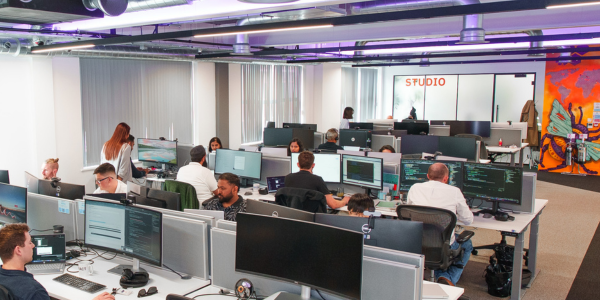Blog | Abstract Group.

In the race to modernise enterprise applications, many organisations are discovering a hard truth: Retrofitting AI into existing systems often leads to complexity, cost overruns, and underwhelming results. At Abstract Group, we believe there is a better way, one that starts with AI at the heart of your development strategy.
What Is AI-First Development?
AI-first development means leading with an agentic business outcome as the central focus of your product design. It’s not about adding AI as an afterthought. It’s about understanding from the outset how AI capabilities will drive customer satisfaction, operational efficiency, or competitive advantage.
This approach flips the traditional development model. Instead of building a system and then asking, “Where can we add AI?”, we begin by asking, “What intelligent outcomes do we want to achieve, and how can AI agents help us get there?”
The Pitfalls of Retrofitting AI
Retrofitting AI into legacy systems is like trying to install a jet engine on a bicycle. You might get it to work eventually, but the effort, cost, and complexity often outweigh the benefits.
Here is why:
Architectural Misalignment: Traditional systems are not built to support AI agents. Retrofitting often results in bolted-on features like chatbots, rather than truly intelligent, agentic experiences.
Data Challenges: AI thrives on data. Retrofitting requires untangling legacy data flows and overcoming technical debt, which is often more difficult than starting fresh.
Proof-of-Concept Paralysis: Many retrofitted AI projects stall after the pilot phase. The excitement fades when teams realise the production rollout is far more complex than anticipated.
Lost ROI: When complexity and costs spiral, the return on investment diminishes. AI becomes a sunk cost rather than a strategic asset.
Why AI-First Development Works
When AI is embedded from the start, everything changes:
Scalability by Design: AI-first applications are built to scale, with data pipelines, workflows, and agent orchestration included from day one.
Smarter Automation: Instead of layering automation on top, AI-first systems are designed to automate intelligently across channels, departments, and systems.
Better Decision-Making: With AI agents integrated into the core architecture, decision-making becomes faster, more accurate, and more adaptive.
Conversational Interfaces: AI-first apps often prioritise natural interfaces such as voice or chat, rather than traditional forms and dashboards.
When Retrofitting Is the Only Option
While AI-first development is ideal, the reality is that many organisations already have established products and platforms. In these cases, retrofitting AI is not just a fallback, it is the only viable path forward.
That is why taking a stepwise approach is critical. Abstract Group’s AI Readiness Framework helps organisations navigate this journey by identifying high-impact use cases, setting clear priorities, and defining integration strategies that make sense for existing architectures.
Rather than rushing to bolt on AI features, this framework ensures that AI capabilities are introduced in a way that aligns with business goals, data realities, and technical constraints. This maximises value while minimising disruption.
Architecting for AI: What’s Different?
In AI-first development, the technology follows the business goal. Developers focus on:
- Understanding data availability and flow
- Defining the scope and autonomy of AI agents
- Designing workflows that support intelligent outcomes
- Prioritising integration and orchestration from the outset
The Power of Partnership: Abstract Group and OneReach.ai
To help UK enterprises embrace AI-first development, Abstract Group has partnered with OneReach.ai, a Gartner Magic Quadrant leader in AI agent orchestration. Their Generative Studio X (GSX) platform enables organisations to build and orchestrate intelligent agents at scale using a low-code environment that accelerates time to value.
This partnership combines Abstract Group’s deep expertise in technology transformation with OneReach.ai’s cutting-edge orchestration capabilities. Together, we help clients move beyond experimentation and into production-ready, scalable AI solutions.
What Developers Need to Know
To succeed with AI-first development, developers should keep four things top of mind:
1) Data – Is it available, clean, and accessible?
2) Workflows – What processes can be intelligently automated?
3) Business Goals – What outcomes are we trying to achieve?
4) User Interface – How will users interact with the system?
Looking Ahead
In the next three to five years, AI-first development will become the standard. Engineers will collaborate with AI agents to build solutions, and the most successful organisations will be those that embed intelligence from the start.
At Abstract Group, we are already helping clients take this leap. Our approach focuses on starting with high-impact use cases, proving value quickly, and scaling with confidence.
Ready to explore AI-first development?
Download this whitepaper on 2025 Agentic AI Trends or book an AI Readiness Workshop to assess your organisation’s maturity and identify high-impact opportunities.


 Ben Houghton | Group CTO
Ben Houghton | Group CTO